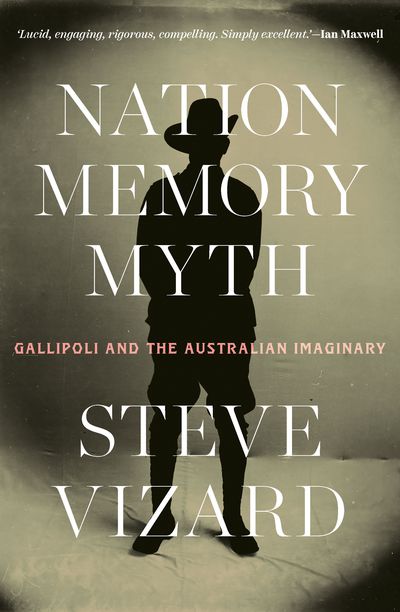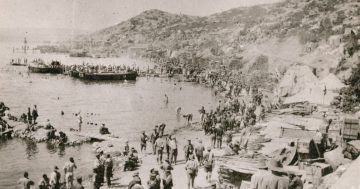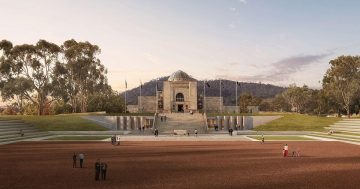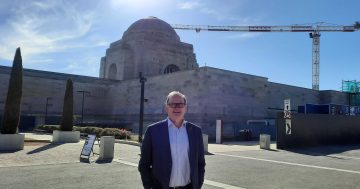
In Nation, Memory, Myth: Gallipoli and the Australian Imaginary, Steve Vizard brings an original perspective to the foundational myth of Gallipoli as a sacred bearer of Australian national values and identity. Photo: Supplied.
It’s of great consequence to know how myth creates meaning for a nation, through a close reading of Gallipoli and the Australian identity. Nation, Memory, Myth: Gallipoli and the Australian Imaginary probes the ‘’social myth of Gallipoli’’ in Australia, its imperial genesis and its enduring legacy in contemporary Australia.
The strong hold of the Anzac legend on the imagination of Australians is an engrossing subject about perceived values of courage, resilience and mateship displayed by Australian and New Zealand soldiers. These values, along with their sacrifices, have become synonymous with the nation’s identity.
That’s an enthralling bedrock for understanding Anzac’s creative obsessions over the Australian nation. Only by understanding the myth’s evolution across time, and by disentangling it from history, memory and forgetting, can we begin to sense what an Australia in the 21st century may mean.
It’s a subject that’s deep and meaningful – and close to Steve Vizard’s heart – sparking inspiration in cogitation. Genuine. Earnest. Profound. Wholehearted. Intense. The content is clear, neither profuse nor perplexing, with cogent assertions.
Vizard is a prize-winning writer, broadcaster, lawyer and research professor at Monash University and the JM Coetzee Centre for Creative Practice, University of Adelaide. He has also hosted his own Gold Logie-awarded television show, Tonight Live with Steve Vizard, and helped create, write and produce numerous groundbreaking television shows including Fast Forward, Big Girl’s Blouse, The Micallef Program and Seachange.
Vizard’s bold, provocative and innovative work helps us make sense of the extraordinary vitality of a legendary story as a force that can unify or divide, and generate meaning for a nation and its citizens. It’s a story of a uniquely profound, compelling and enduring type of story: the myth of a nation, told by a nation about a nation, in becoming a nation. Of how a myth of nation inspires.
In two parts, Vizard probes the creation of the Gallipoli folklore, exploring, among other things, its very nature, its nation-building role and its disputed inadequacies in merging a disparate Australia. At times, though, the language can feel exalted.
Vizard admits to this project having started as “another scattergun dinner conversation about the persistent, treasured and yet puzzling place of Gallipoli in Australian life”.
As he explains it: “The modern nation is not only a legal, political, economic and administrative system but an emotional system. As much as the nation is constructed by the force of rational ideas, it is vitalised by the turbulence of individual and collective emotions and relationships – excitement, joy, love, anger, fear, happiness, guilt, sadness, embarrassment, hope, surprise, disgust, contempt, terror, distress – which continually shift and reconfigure in context and meaning. It is fundamental to the sustained life of a nation that it stabilises, unifies, nurtures and mobilises these emotions to enact individual and collective cohesion, continuity, identity and attachment to the nation.
“Only by recognising the unique social power of foundation myths as an elevated symbolic carrier of a nation’s fundamental values and ideologies, as an intense cultural force and template of shared belief, cohesion and continuity, can we learn from and cultivate their persistent capacity to shape group solidarity and the nation’s generational identity.”
Explored is the little-understood, often puzzling, yet dynamically pervasive role of a basis for a traditional story in the functioning of a nation. How can it be that a simple myth of nation, above all other stories, takes root so deeply that it can spur zealous citizens to sublimate personal desire, to run towards enemy fire, to face certain death, to unquestioningly sacrifice all for nation?
“Only by disentangling the modal confusion between national myths and other common forms of discourse – such as history, memory, folklore, tradition, legend, fiction and even forgetting – can we begin to understand not only why national myths persist and prosper, but why other seemingly inspiring, evocative or timely stories fail to take root or flourish in the national imagination,” Vizard writes.
“Critically, for those hungering to shape their nation into a more unified, reconciled, just, secure and free home, it is only by fully comprehending the special role of these sacred narratives that old stories can be enlivened and new stories nourished, to better embrace the past – both in celebration and atonement – and nurture a more perfect union.”
The central claim is that nationalised narratives play a fundamental, potent but little-understood role in the symbolic and cultural functioning of the modern nation. National myths don’t get in the way of the operation of the nation; they are the operation of the nation.
Nation, Memory, Myth: Gallipoli and the Australian Imaginary by Steve Vizard, Melbourne University Press, $39.99











